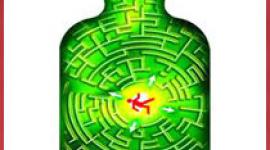Treating Dual Diagnosis: Mental Illness Plus a Drug or Alcohol Problem
Learn about treating dual diagnosis and what's involved in the treatment of a co-occuring addiction and mental illness.
Why is it important to treat both the psychological disorder and the alcohol/drug use?
When neither illness is treated, one illness can make the other worse. When only one illness is treated, treatment is less likely to be effective. When both illnesses are treated, the chances for a full and lasting recovery are greatly improved, and it is easier to return to a full and productive life.
How does recovery from dual disorders occur?
- Recovery must be the individual's choice. People cannot be "pushed" into giving up substances. Over time they can learn to manage both their illnesses and to get on with their lives in personally meaningful ways.
- The process of recovery begins as soon as someone enters a dual disorders treatment program or becomes committed to managing their illnesses.
- Recovery takes time, hope, and courage. For most people, recovery occurs over months or years.
- People in integrated dual disorders treatment programs learn to manage two long-term illnesses and build a new meaningful life without drugs. This process requires time, support, education, courage, and skills.
- You can help. Everyone in your loved one's life can help by offering support, hope, and encouragement.
What treatment is available for dual diagnosis?
Despite much research that supports its success, integrated treatment is still not made widely available to consumers. Those who struggle both with serious mental illness and substance abuse face problems of enormous proportions. Mental health services tend not to be well prepared to deal with patients having both afflictions. Often only one of the two problems is identified. If both are recognized, the individual may bounce back and forth between services for mental illness and those for substance abuse, or they may be refused treatment by each of them. Fragmented and uncoordinated services create a service gap for persons with co-occurring disorders.
 Effective integrated treatment consists of the same health professionals, working in one setting, providing appropriate treatment for both mental health and substance abuse in a coordinated fashion. The caregivers see to it that interventions are bundled together; the patients, therefore, receive consistent treatment, with no division between mental health or substance abuse assistance. The approach, philosophy and recommendations are seamless, and the need to consult with separate teams and programs is eliminated.
Effective integrated treatment consists of the same health professionals, working in one setting, providing appropriate treatment for both mental health and substance abuse in a coordinated fashion. The caregivers see to it that interventions are bundled together; the patients, therefore, receive consistent treatment, with no division between mental health or substance abuse assistance. The approach, philosophy and recommendations are seamless, and the need to consult with separate teams and programs is eliminated.
Integrated treatment also requires the recognition that substance abuse counseling and traditional mental health counseling are different approaches that must be reconciled to treat co-occurring disorders. For instance, it is not enough merely to teach relationship skills to a person with bipolar disorder. They must also learn to explore how to avoid the relationships that are intertwined with their substance abuse.
Dual diagnosis services include different types of assistance that go beyond standard therapy or medication: assertive outreach, job and housing assistance, family counseling, even money and relationship management. The personalized treatment is viewed as long-term and can be begun at whatever stage of recovery the person is in. Positivity, hope and optimism are at the foundation of integrated treatment.
Self-help may also be useful.
Self-help groups, such as Alcoholics Anonymous or Double Trouble, are valuable to some people; it may be added to integrated dual disorders treatment, especially when the person has started on a path of recovery. Self-help groups such as Al-Anon, can be valuable to family members.
Why is it important to stay clean and sober when getting treatment?
Mixing alcohol or drugs with medication can have serious and dangerous effects. Many medications, including over-the-counter medications, interact with alcohol or drugs in harmful ways. It is also unlikely that you will benefit from talk therapy if you are under the influence.
What can family members and significant others do when a loved one is dealing with dual diagnosis or co-occuring disorders?
- Get support for yourself. Join a family support group and attend self-help groups.
- Support your loved one's efforts in their recovery process.
- Be clear that you care about your loved one, but that you can set limits around disruptive behaviors.
- Understand that relapse is part of the recovery process.
- Recognize that your loved one's self -esteem and understanding about the effects of drug use will improve with the recovery process.
- Have patience. Dual recovery may take months or years.
- Listen. Be positive. Do not criticize.
- Get information for yourself. The more you know, the more you will understand recovery and the more helpful you can be.
- Use your information and personal experience to advocate for dual disorders treatment.
Work with your loved one's dual disorders team. Your loved one's recovery process may benefit from your hopeful support.
Sources:
- NAMI (National Alliance for the Mentally Ill)
- Substance Abuse and Mental Health Services Administration
- NIH
- Depression and Bipolar Support Alliance
next: Signs Your Child is Using or Abusing Drugs or Alcohol
~ addictions library articles
~ all addictions articles
APA Reference
Gluck, S.
(2008, December 14). Treating Dual Diagnosis: Mental Illness Plus a Drug or Alcohol Problem, HealthyPlace. Retrieved
on 2025, April 17 from https://www.healthyplace.com/addictions/articles/treating-dual-diagnosis



